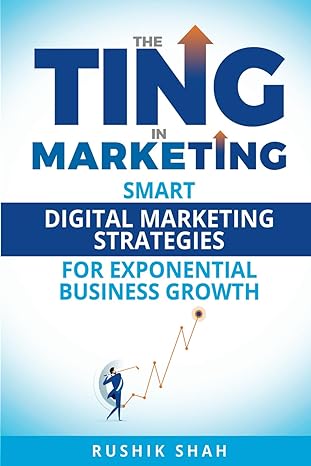
Best API Integration Services
API Integration Services are vital in today's digital landscape, connecting the dots between various software applications seamlessly. As a seasoned professional from Nexonta Technologies Inc with over two decades of experience, I've witnessed firsthand the transformative power of these services. Connecting disparate systems allows for enhanced productivity and streamlined operations, crucial for businesses aiming for efficiency.
APIs, or Application Programming Interfaces, work like the conduits that facilitate interactions between different software components. Through API Integration Services, businesses can automate workflows, synchronize data across platforms, and improve their overall efficiency. Key benefits include reduced manual labor, real-time data access, and increased productivity.
Integrating APIs can help businesses scale effectively, ensuring that applications work harmoniously without redundancies or errors. By leveraging API Integration Services, companies can focus on their core competencies while leaving technical complexities to reliable solutions.
How Do API Integration Services Work?
API Integration Services operate by establishing a communication channel between different applications. This involves using APIs to exchange data, ensuring all systems remain in sync. My journey at Nexonta Technologies Inc has involved numerous such integrations, where we've connected platforms like Salesforce, Slack, and other business tools to drive revenue and efficiency.
Understanding the technical aspects of API Integration Services involves breaking down the process into actionable steps. Initially, one must identify the business case for integration, followed by a detailed analysis of the systems involved. After establishing a clear understanding of data flow, the integration can be built and tested, ensuring accuracy and efficiency.
Successful API Integration Services require constant monitoring and optimization. By assessing performance and identifying areas of improvement, organizations can ensure their integrations remain robust and efficient. At Nexonta Technologies Inc, we continuously optimize our integrations to align with dynamic business needs.
Common Challenges in API Integration
Despite the advantages, implementing API Integration Services isn't devoid of challenges. A major hurdle is ensuring data consistency, especially when dealing with multiple systems and data formats. From my experience, careful planning and an understanding of each system's data architecture are crucial to overcoming this.
Another challenge is security. Protecting sensitive data during transfers is paramount, particularly in industries dealing with confidential information. Adopting robust security measures and encryption protocols can mitigate these risks. API Integration Services must adapt to evolving security standards to safeguard data integrity.
Technical expertise is often required to handle complex integrations. Businesses may face the dilemma of investing in internal expertise or partnering with experienced providers like Nexonta Technologies Inc. Either way, having skilled professionals to manage integrations is vital for success.
Lastly, resource allocation can be a concern, as the initial setup and continued maintenance of API Integration Services demand time and effort. However, the long-term benefits often outweigh the initial investment, offering substantial returns in terms of operational efficiency.
Why Use Low-Code Automation Platforms?
Low-code automation platforms offer a new dimension to API Integration Services. These platforms provide flexible, user-friendly solutions that allow even those without extensive coding knowledge to build integrations. This democratizes the integration process and empowers teams to create their own workflows.
At Nexonta Technologies Inc, we've embraced low-code tools to streamline our operations and offer innovative solutions to clients. The ability to quickly adapt and implement changes without deep technical know-how is a game changer, enabling businesses to stay agile and responsive to market shifts.
- Rapid deployment of new integrations
- Enhanced flexibility in workflow design
- Reduced reliance on IT support for changes
Low-code platforms also allow for better collaboration across departments, as business users can directly engage with the technology. This results in more customized and efficient API Integration Services, tailored to specific business needs.
What Qualifies as a Successful API Integration?
A successful API integration ensures seamless data exchange between applications, improving overall business processes. At Nexonta Technologies Inc, we gauge success by the integration's ability to minimize errors and maximize workflow efficiency. Key indicators include data accuracy, speed of communication, and ease of use for end-users.
Another success factor is the integration's scalability. As a business grows, the integration should be capable of handling increased data loads without compromising performance. This future-proofing is essential for businesses looking to maintain a competitive edge.
Additionally, successful API Integration Services should facilitate innovation, allowing businesses to experiment with new functionalities and workflows. The ability to quickly adapt and integrate emerging technologies can provide a significant advantage in today's fast-paced digital environment.
Finally, the cost-effectiveness of the integration process is crucial. By leveraging pre-built solutions and automation platforms, businesses can achieve efficient integrations without excessive expenditure, focusing resources on strategic growth initiatives instead.

The Role of Third-Party API Developers
At the heart of digital transformation, third-party API developers act as crucial enablers. They bridge the gap between different software environments, offering seamless integration capabilities. In our 20+ years at Nexonta Technologies Inc, we've seen how leveraging APIs can simplify complex tasks, streamlining operations across diverse platforms. The magic lies in how Third-Party API Developers enhance interactivity, offering users dynamic experiences by connecting applications like Instagram or YouTube directly to your site.
Why Choose Third-Party API Developers?
- Cost Efficiency: By utilizing third-party APIs, businesses can save on development costs.
- Accelerated Time-to-Market: APIs allow faster deployment, enabling swift project launches.
- Scalability: These solutions grow with your business, adapting to increased demands seamlessly.
Our team at Nexonta Technologies Inc has firsthand experience with these benefits, ensuring our projects remain both efficient and scalable by working alongside third-party API developers. This partnership allows businesses to focus on core operations without the overhead of building tools from scratch.
How to Effectively Collaborate with Third-Party API Developers
- Identify your integration needs: Determine which functionalities require enhancement.
- Research and select the best APIs: Evaluate potential solutions for compatibility and performance.
- Engage experienced developers: Collaborate with Third-Party API Developers to integrate and customize the API to your needs.
From my experience at Nexonta Technologies Inc, engaging with third-party API developers is about clarity and communication. Clearly defined goals and expectations streamline development efforts and minimize delays.
What Are the Challenges Faced by Third-Party API Developers?
Third-party API developers often navigate a complex landscape, balancing between client expectations and API limitations. Frequent updates and changes in API documentation can lead to compatibility issues. At Nexonta, we've encountered these hurdles, but effective communication and proactive monitoring ensure smooth adaptations.
Security also stands as a significant concern. Ensuring data integrity and confidentiality when transferring information across APIs is paramount. Developers must implement robust security measures, a practice we've honed with continuous updates and rigorous testing protocols.
Can Third-Party API Developers Revolutionize Marketing?
Absolutely! By utilizing the expertise of third-party API developers, businesses can harness data-driven insights to foster personalized marketing approaches. APIs allow access to vast user data, enabling tailored marketing campaigns and enhanced user engagement.
Our notable projects at Nexonta Technologies Inc showcase how integrating social media APIs with marketing platforms significantly boosts outreach efforts and ROI. This holistic approach aligns with modern marketing strategies, proving that third-party API developers are not just optional--they're essential.
How to Choose the Right Third-Party API Developers?
Selecting the right third-party API developers is crucial for project success. Consider their track record, client testimonials, and capability to adapt to evolving technologies. At Nexonta Technologies Inc, we prioritize developers who bring not just technical expertise but also a collaborative spirit to the table.
We believe that a developer's role extends beyond coding; they're partners in innovation, contributing to the strategic growth of projects. Ensuring alignment in vision and goals can significantly enhance your project's outcome, enabling you to leverage the full potential of third-party APIs.
The Importance of API Development and Integration
API Development and Integration serve as the backbone of today's digital ecosystem, allowing software systems to communicate seamlessly. As someone with over 20 years in the tech industry, I've witnessed firsthand how this integration transforms potential into performance. At Nexonta Technologies Inc, we've leveraged these practices to streamline business operations and enhance user experiences across platforms.
Our clients often ask why API Development and Integration are crucial. The answer is simple: they facilitate efficient data exchange, foster innovation, and enhance connectivity between disparate systems. Whether you're an enterprise looking to connect complex internal systems or a startup integrating third-party functionalities, APIs simplify processes and foster scalability.
Effective integration can save both time and resources. APIs act as bridges, ensuring that different systems can communicate without compatibility issues. In my experience, this not only boosts operational efficiency but also allows teams to focus on core innovations rather than troubleshooting.
Another critical aspect is adaptability. Technologies evolve rapidly, and APIs make it easier for companies like Nexonta Technologies Inc to adapt and integrate the latest trends into existing structures. From social media campaigns to complex e-commerce solutions, API Development and Integration allow diverse systems to work in harmony.
Steps to Successful API Integration
In the past two decades, I've developed a streamlined approach to API integration that ensures success. Start by thoroughly reviewing the API documentation to understand its capabilities and limitations. An informed understanding sets the stage for a smooth integration process.
- Select the Right APIs: Choose APIs that align with your business goals and have robust security features.
- Plan Integration Strategy: Decide whether to use pre-built SDKs or custom code based on your flexibility and resource availability.
- Test Rigorously: Ensure that integrated systems communicate correctly and efficiently, minimizing the risk of errors.
- Monitor and Optimize: Post-integration, monitor performance and make necessary adjustments to optimize functionality.
At Nexonta Technologies Inc, we follow a similar methodology, always prioritizing security and scalability. Our team's experience has taught us that a proactive approach to testing and optimization is key to long-term success.
What Challenges Arise with API Integration?
Despite its many benefits, API Development and Integration can present challenges. One frequent issue is compatibility. Different APIs may use varying protocols or data formats, making seamless integration a challenge. However, with a clear strategy and careful planning, these hurdles can be overcome.
Security is another concern that cannot be overlooked. Ensuring that APIs are secure and compliant with industry standards is vital to protecting sensitive data. At Nexonta Technologies Inc, we prioritize integrating APIs with robust encryption and authentication features.
Performance bottlenecks can also occur if APIs are not optimized. I've seen businesses struggle with slow response times, which can impact user experience. A focus on performance monitoring and optimization helps mitigate these issues.
Future Trends in API Development
The landscape of API Development and Integration continues to evolve, with new trends emerging that promise to reshape the industry. One such trend is the rise of AI-driven APIs, which offer advanced analytics and automation capabilities. These APIs enable more sophisticated decision-making processes, a trend Nexonta Technologies Inc is keen to explore further.
Additionally, the movement towards microservices architecture necessitates efficient API integration. This architectural style optimizes scalability and flexibility, allowing businesses to quickly adapt to changing market demands. At Nexonta, we've been integrating microservices to enhance our clients' application performance.
Another exciting development is the growing use of low-code platforms for API integration. These platforms democratize the process, allowing even those with minimal coding experience to integrate APIs effectively. This is paving the way for a new wave of innovation in digital solutions.
As the industry progresses, staying abreast of these trends will be essential. At Nexonta Technologies Inc, we remain committed to exploring these emerging technologies, ensuring our clients benefit from the latest advancements in API Development and Integration.
What is the importance of effective API integration for businesses?
API integration is crucial for businesses aiming to streamline operations and enhance efficiency. At Nexonta Technologies Inc, we've seen firsthand how proper API integration can transform business processes. For example, consider automating data synchronization between your CRM and marketing tools. This not only reduces manual data entry but also ensures that your marketing team has access to real-time data for decision-making. Studies have shown that companies leveraging effective API integrations can improve productivity by up to 30%.
Imagine running a social media campaign where you need immediate access to customer data to tailor your messaging. APIs make it possible to pull this information seamlessly, enabling more personalized and timely communications. If you want to delve into how API integration might specifically benefit your operations, feel free to reach out or comment with any questions you might have!
What are some of the common challenges businesses face in API integration?
API integration isn't without its hurdles. One of the key challenges we often encounter at Nexonta Technologies Inc is ensuring data consistency across platforms. Different systems might handle data differently, requiring careful planning to align them. On top of that, security is a major concern. Ensuring secure data transfer and complying with industry standards is vital. We always recommend implementing robust encryption and authentication protocols.
Another challenge is the need for technical expertise. It can be daunting for businesses to decide whether to develop in-house capabilities or partner with experienced providers. Our experience suggests that collaborating with seasoned API developers often leads to more efficient and timely integration. Have you experienced any specific challenges with API integration in your business? I'd love to hear your thoughts!
Why might a business choose to collaborate with third-party API developers?
Collaborating with third-party API developers can be a strategic move for many businesses. At Nexonta Technologies Inc, we value these partnerships for their cost efficiency and accelerated time-to-market. Third-party APIs can dramatically reduce development costs and help deploy solutions quickly, allowing you to stay ahead of competitors. For instance, integrating a payment processing API from a trusted provider can be much more efficient than developing one from scratch.
Another benefit is scalability. Third-party APIs often come with built-in scalability, which means they can grow with your business needs. This is particularly beneficial if you're operating in a fast-paced industry where demand might fluctuate. If you're considering whether to partner with third-party API developers, think about the project goals and timeline. What kind of expertise or resources do you already have, and what might you need to bring in externally?
What are some emerging trends in API development that businesses should be aware of?
The world of API development is always evolving, and staying ahead of trends can provide a competitive edge. At Nexonta Technologies Inc, we're particularly excited about the rise of AI-driven APIs. These offer advanced analytics capabilities and can significantly enhance decision-making processes. Imagine integrating machine learning APIs that can analyze customer behavior in real-time to predict future purchasing decisions.
Microservices architecture is another trend gaining traction. This approach allows for greater flexibility and scalability, making it easier for businesses to adapt to change. Additionally, the growing use of low-code platforms for API integration is notable. These platforms empower users with minimal coding experience to execute complex integrations, democratizing technology and fostering innovation.
Are you exploring any of these trends in your business? Feel free to share how these technologies are being leveraged or any observations on their impact!
Resources
- World Wide Web Consortium (W3C) - The World Wide Web Consortium is an international community where Member organizations, a full-time staff, and the public work together to develop Web standards.
- Mozilla Developer Network (MDN) - Mozilla Developer Network provides detailed documentation on web development technologies such as HTML, CSS, and JavaScript.
- ProgrammableWeb - ProgrammableWeb offers a directory of APIs and mashups for developers, along with news and analysis on API trends and technologies.
- Nielsen Norman Group - Nielsen Norman Group is a leading UX research and consulting firm, providing valuable insights on user experience design and usability.
- Internet Live Stats - Internet Live Stats provides real-time data on various internet metrics, including the number of internet users, websites, and emails sent.








